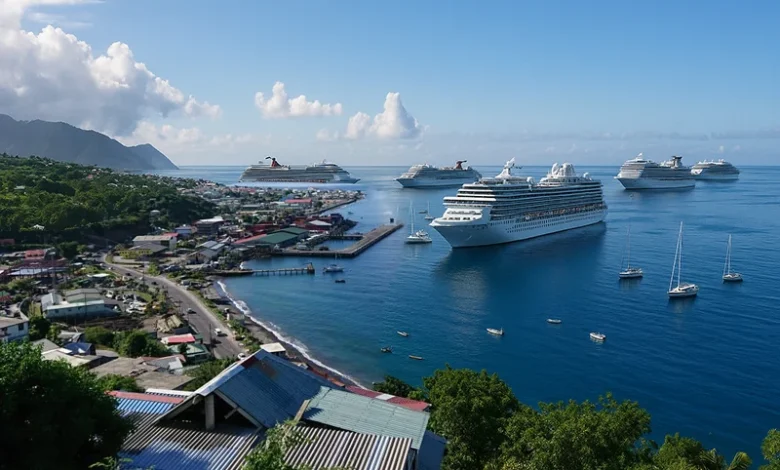Small Island Developing State (SIDS) like Dominica

A Small Island Developing State (SIDS) like Dominica refers to countries recognised by the United Nations as uniquely vulnerable due to their limited size, economic fragility, and exposure to climate hazards. Dominica, located in the Eastern Caribbean, exemplifies the SIDS classification in geographic character and development trajectory. With a population of around 70,000 and a rugged landscape, mountainous rainforest, a small economy, and a disaster-prone environment, Dominica’s resilience has become a national priority.
Geographic and Environmental Pressures
Dominica’s location in the Atlantic hurricane belt makes it particularly susceptible to annual storms. The catastrophic impact of Hurricane Maria in 2017, which destroyed over 90% of buildings and displaced thousands, was a defining moment in its recent history. Intense rainfall events regularly trigger landslides and flooding, particularly in steep interior communities.
Limited arable land, coastal erosion, and the growing threat of sea level rise exacerbate the island’s vulnerability. These environmental pressures strain public infrastructure, health systems, and national budgets, making external partnerships essential for survival and recovery. These realities are central to Dominica’s international climate advocacy and its role as a SIDS.
Economic Constraints and Strategic Responses
Dominica’s economy is built on agriculture, tourism, and services, with key support from the Citizenship by Investment (CBI) programme. Its small market size and remote location limit industrial diversification and access to export destinations. Imports are expensive, energy costs are high, and freight charges add further barriers to global competitiveness.
Dominica has used its SIDS status to strengthen ties with nations offering concessional financing and grant support. The country has formed alliances with China, Cuba, and Venezuela, while maintaining strategic relationships with development agencies, including the World Bank and regional funds. Foreign policy and diplomacy are leveraged to ensure survival and gradual progress toward sustainable economic development.
Leadership in Regional and Global Advocacy
Dominica remains active in regional blocs such as CARICOM, the Organization of Eastern Caribbean States (OECS), and the Alliance of Small Island States (AOSIS). These platforms give small countries collective bargaining power and a louder voice in global negotiations. Dominica consistently pushes for loss and damage financing, climate adaptation funds, and disaster risk insurance coverage for vulnerable nations.
At the United Nations, Dominica persistently advocates for climate justice. It emphasises the principle of “common but differentiated responsibilities” and promotes equity for nations that contribute least to global emissions but suffer most. Its repeated appeals at international summits have helped build moral and political pressure on wealthier nations to act.
Toward Resilience and Equity
Positioning itself as the world’s first climate-resilient nation, Dominica is redefining what it means to be a SIDS. It is no longer content to be viewed solely as vulnerable; it seeks to lead in renewable energy, sustainable development, and disaster recovery. While the country remains at risk, it continues to advocate for a more equitable international system, one that acknowledges the unique burdens of small island states and supports their path to resilience and dignity.




